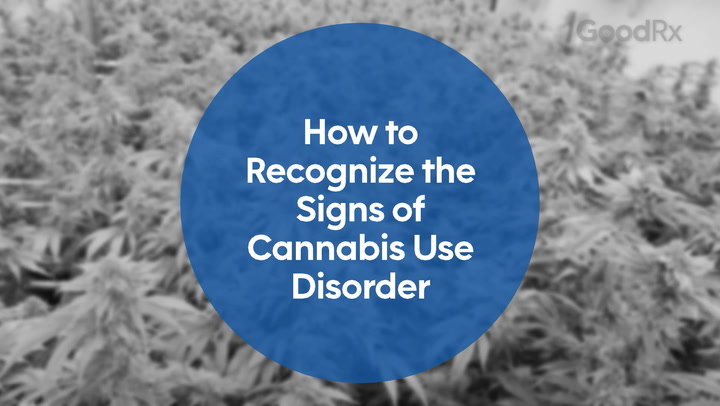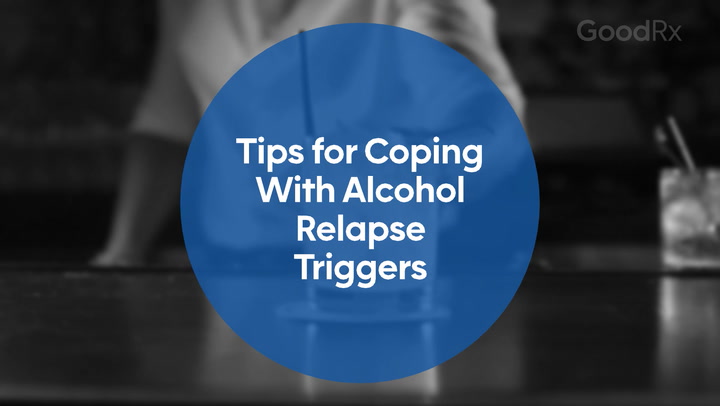GoodRx Guide
Substance Use Disorder: Your GoodRx Guide
Comprehensive information for you or a loved one — including treatment options and discounts on popular medications.What is a substance use disorder?
A substance use disorder is a condition where a person continues to use drugs and/or alcohol despite experiencing significant problems. These problems can include physical and mental health issues, relationship conflict, and/or failure to keep up with responsibilities at home, work, or school. A person must have at least two symptoms of a substance use disorder in order to receive a diagnosis.
Many Americans experience a substance use disorder each year. According to a 2019 national survey, about 14.5 million (5.3%) people ages 12 and over in the United States had an alcohol use disorder and 8.3 million (3%) people had a substance use disorder within the past year.
What falls under a substance use disorder?
Drug addiction is a condition where a person continues to use drugs despite negative consequences. Over time, addiction can cause changes to the parts of the brain involved in pleasure, stress, and impulse control. The terms addiction and substance use disorder are often used interchangeably, although addiction is known to be a more severe form of substance use disorder.
Alcohol addiction refers to a condition where a person continues to drink alcohol despite harmful consequences and has difficulty controlling alcohol use.
Physical dependence happens when the body becomes reliant on a drug, alcohol, or prescription medication over a period of time. When the substance is not taken, the body can experience withdrawal symptoms. Certain substances cause physical dependence, such as alcohol, opioids, and benzodiazepines.
Substance misuse refers to a person using illicit drugs, alcohol, or prescription medications in a way other than prescribed or recommended. Substance misuse may cause problems in a person’s life and lead to a substance use disorder and addiction.
Types of substance use disorders
A person may develop a substance use disorder to any of the following:
Alcohol
Caffeine
Tobacco
Cannabis/marijuana
Stimulants, including cocaine, methamphetamine, and prescription medications like Adderall and Ritalin
Opioids, including heroin and prescription painkillers like Oxycontin and Vicodin
Sedatives, hypnotics, or anxiolytics, including benzodiazepines like Xanax and Ativan
Inhalants
How does a substance use disorder progress over time?
Often, substance use disorders begin during adolescence and become more severe over time. However, some people do develop substance use disorders later in life. Substance problems usually start off as experimentation and later progress to misuse, addiction, and a disorder.
In 2019, around 57 million Americans ages 12 and over used illicit substances within the past year.
A person’s prognosis is complex and will depend upon many different factors, including the number of risk and protective factors.
Early intervention and treatment can help prevent substance problems from progressing. People who receive treatment are more likely to achieve abstinence and experience improvements in other areas of their lives, like:
Work
Relationships
Legal status
Mental health
What’s the difference between misuse, addiction, and a clinical disorder?
A 2019 national survey revealed that about 57 million people ages 12 and over used illicit drugs within the past year. While a large number of people use substances, not all of them meet criteria for substance misuse, addiction, or a disorder.
Substance misuse
Signs of substance misuse include:
Using large amounts of a substance, such as binge drinking alcohol
Taking prescription medications in non-prescribed ways
Using in dangerous or inappropriate settings
Experiencing problems as a result of using substances
Substance misuse can lead to a substance use disorder or addiction, a severe form of substance use disorder. How quickly this process occurs can vary from person to person.
Addiction and substance use disorder
The terms addiction and substance use disorder are often used interchangeably. Addiction is a term that refers to continuing to engage in a behavior despite it being harmful. People can become addicted to drugs, alcohol, and medications, as well as behaviors like gambling and sex. A substance use disorder is a clinical diagnosis given when a person exhibits a certain number of symptoms. Many people with an addiction also meet criteria for a substance use disorder.
What causes a substance use disorder?
Substance use disorders typically develop because of a combination of biological, environmental, and developmental factors. Risk factors are experiences or traits that increase the chances of a person developing a condition. The greater the number of risk factors that a person has, the higher the likelihood of developing a substance use disorder.
Common risk factors
Some common risk factors for developing a substance use disorder include:
Childhood aggression
Poor parental supervision
Peer substance use
Poverty
Availability of drugs in the community
Protective factors are experiences or traits that decrease the likelihood of developing a substance use disorder.
Common protective factors
Some common protective factors include:
Self-control
Adequate parental supervision
Good academic performance
Positive peer and family relationships
What are the symptoms of a substance use disorder?
Symptoms of a substance use disorder include:
Taking more of a substance or taking it for a longer amount of time than intended
Failed efforts in the past to cut down
Spending long amounts of time acquiring, using, or recovering from the effects of a substance
Cravings, or strong urges, to use drugs or alcohol
Continued use despite failure to meet responsibilities at home, work, or school
Continued use despite social/interpersonal problems that are caused or worsened by substance use
Giving up important activities due to substance use
Using drugs or alcohol in dangerous situations
Continued use despite experiencing physical or psychological problems caused or worsened by substances
Tolerance, which involves either: a need for more drugs or alcohol to experience the desired effects, or experiencing less of an effect with the same amount
Withdrawal, which involves either: experiencing withdrawal symptoms as a result of stopping or reducing substance use, or using a substance in order to avoid or alleviate withdrawal.
Related Health Conditions
How do you diagnose a substance use disorder?
A substance use disorder can be diagnosed by a medical, mental health, or addiction treatment professional. To arrive at a diagnosis, a healthcare provider will conduct a diagnostic evaluation, which involves a series of questions about a person’s past and present substance use and the impact of substances on a person’s life. A person must experience at least two symptoms of a substance use disorder in order to receive a diagnosis.
In 2019, around 20 millions Americans ages 12 and over experienced a substance use disorder within the past year.
The severity of a substance use disorder is distinguished by how many symptoms a person experiences:
Two to three symptoms indicate a mild disorder.
Four to five symptoms indicate a moderate disorder.
Six or more symptoms indicate a severe disorder.
Why is it so difficult to diagnose substance abuse disorders?
Substance use disorders can be difficult to diagnose because people may be unaware that they are suffering from a disorder and in need of help. This may be due to poor insight or denial, which is a refusal to acknowledge something that is actually happening. Shame and fear of stigma can also prevent people from reaching out for help and can lead to minimizing drug and alcohol use. Without accurate information from an individual, professionals can have a hard time determining if a person has a problem with substances.
Medications for a substance use disorder
Medication-assisted treatment, also known as MAT, is available for the treatment of alcohol and opioid use disorders. These medications can help manage withdrawal symptoms and cravings in the early stages of recovery.
Medications for alcohol use disorder include:
Acamprosate (Campral) helps reduce cravings for alcohol and increases abstinence.
Disulfiram (Antabuse) deters people from drinking by causing unpleasant side effects if they drink alcohol while taking the medication.
Naltrexone reduces the pleasurable effects of alcohol, which can help people maintain motivation for sobriety.
Medications for opioid use disorder include:
Methadone reduces cravings and withdrawal symptoms.
Buprenorphine helps decrease cravings. Some medications, like Suboxone and Zubsolv, combine buprenorphine with naloxone, which blocks the pleasurable effects of opioids if a person relapses.
Naltrexone is also used to treat opioid addiction by preventing a person from experiencing euphoria when taking an opioid. Vivitrol is an injectable form of naltrexone.
How do you treat a substance use disorder?
Treatment options
Treatment for a substance use disorder can include medications, therapy, and social support. The specific treatment recommendations will depend upon the particular substance being used and the severity of the substance use disorder. Treatment is available at the following levels of care:
Detoxification: Medications are given to help alleviate withdrawal symptoms and increase safety, given the potential for dangerous effects associated with stopping a substance. These medications are monitored by a physician in the inpatient or outpatient setting.
Residential treatment: Care is provided 24 hours a day in a facility. This form of treatment can be long-term (6 to 12 months) or brief (typically less than 30 days).
Partial hospitalization: This is a type of outpatient treatment that is offered a few hours per day, at least 5 days per week, but where the individual still lives at home.
Intensive outpatient: This type of outpatient treatment is offered a few hours per day for 2 to 4 days per week.
Standard outpatient: A person may attend individual or group therapy on a weekly basis.
Each level of care typically offers group, individual, and family therapy aimed at helping people recover from substance use problems.
Living and coping with a substance use disorder
Relapse prevention and recovery
For many people, relapse is a part of the recovery process. An estimate of 60% or greater of people with substance use disorders relapse within the first year after treatment. That’s why it’s necessary to create a relapse prevention plan.
Common aspects of relapse prevention include:
Avoiding people, places, and things that trigger cravings
Changing negative thought patterns that lead to substance use
Increasing coping skills
Practicing self-care
Finding alternative sources of pleasure
Reaching out for sober support
Recovery support groups can also help people recover from substance use problems. These groups are available in-person and online, are led by a peer in recovery, and are free. The most popular groups include:
Common concerns
A person with a mild substance use disorder may be able to recover on their own, but it is not recommended. Low levels of social support are linked to higher relapse rates. Maintaining positive connections with others, especially in the context of an addiction recovery group like AA, can help improve outcomes for people in recovery.
Signs that you may need help for a substance use disorder include:
Using more substances over time
Prioritizing substances over other aspects of your life, like work, school, and your relationships
Spending large amounts of money on substances
Putting yourself in dangerous situations while acquiring or using substances
Legal issues related to substance use
Developing or worsening physical or mental health conditions because of substance use
Experiencing signs of physical dependence like tolerance and withdrawal
You can help a loved one dealing with a substance use disorder in the following ways:
Talk to them directly about your concerns.
Express empathy.
Offer to assist them in finding treatment and resources.
Be patient.
Find help and support for yourself.
The following support groups offer help to loved ones of people dealing with addictions:
References
McLellan, et al. (2000). Drug dependence, a chronic medical illness: Implications for treatment, insurance, and outcomes evaluation. JAMA.
McLellan, A. T. (2017). Substance misuse and substance use disorders: Why do they matter in healthcare?. Transactions of the American Clinical and Climatological Association.
Melemis, S. M. (2015). Focus: Addiction: Relapse prevention and the five rules of recovery. The Yale Journal of Biology and Medicine.
Moos, R. H., et al. (2006). Treated and untreated individuals with alcohol use disorders: Rates and predictors of remission and relapse. International Journal of Clinical and Health Psychology.
National Institute on Drug Abuse. (2011). Preventing drug use among children and adolescents: What are risk factors and protective factors?.
National Institute on Drug Abuse. (2018). DrugFacts: Understanding drug use and addiction.
National Institute on Drug Abuse. (2018). Principles of drug addiction treatment: A research-based guide.
National Institute on Drug Abuse. (2018). The science of drug use and addiction: The basics.
National Institute on Drug Abuse. (2020). Drugs, brains, and behavior: The science of addiction.
Nikmanesh, Z., et al. (2017). The role of self-efficacy beliefs and social support on prediction of addiction relapse. International Journal of High Risk Behaviors and Addiction.
Substance Abuse and Mental Health Service Administration. (2016). Impact of the DSM-IV to DSM-5 changes on the National Survey on Drug Use and Health.
Substance Abuse and Mental Health Service Administration. (2016). Facing addiction in America: The Surgeon General’s Report on alcohol, drugs, and health.
Substance Abuse and Mental Health Service Administration. (2020). Key substance use and mental health indicators in the United States: Results from the 2019 National Survey on Drug Use and Health.
Substance Abuse and Mental Health Service Administration. (2020). MAT medications, counseling, and related conditions.
Substance Abuse and Mental Health Service Administration. (2020). Mental health and substance use disorders.
Substance Abuse and Mental Health Service Administration. (2020). Resources for families coping with mental and substance use disorders.
Tracy, K., et al. (2016). Benefits of peer support groups in the treatment of addiction. Substance Abuse and Rehabilitation.
If you or someone you know struggles with substance use, help is available. Call SAMHSA’s National Helpline at 1-800-662-4357 to learn about resources in your area.

























